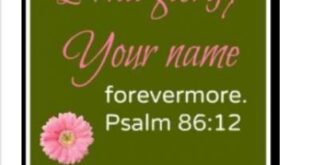The war ended. Hoài went back to the countryside and helped his wife’s family with its rice fields, trying to pass the time for the remainder of what he felt was a meaningless life. The final legacy of a soldier whose side had lost the war was just two empty hands and a pain that ate at his soul. At just twenty-five years of age, he had lost everything. The degrees he had earned under the old regime were only good enough for lighting a fire after they were crumbled into balls, or for using as wrappers for the sweet rice or the corn to feed the children at breakfast. Such feelings caused him to have an inferiority complex. When not working in the fields, he hid himself in the house. He did not want to socialize with anyone.
The hamlet of Phú Long was crowded. Most of the people were Christians. There was a Protestant church that seemed to have been there forever. During the war, because the church was between the two camps, it was attacked many times by each side. Every time it was attacked, it suffered heavy destruction. The Christian followers would get together and contribute labor or money to repair it. So, the church always looked new and the people’s recollection of those events always remained vivid.
Work in the fields followed a schedule and the seasons. After the harvest was done, Hoài lacked work. Every day, he would lie down with his arms across his forehead, sighing in and out. Or he paced in and out of the house, then watched the sky and the earth.
One day, his wife came home from the market.
“Honey, this morning, they set up a market in front of the Phú Long church. It was so much fun!”
“That’s a place of worship! Have they a market there? The church didn’t stop them?”
“Where in this Phú Long hamlet do you see an empty lot for a market? This morning, the pastor came out to look around, then he laughed out loud.”
Hoài jumped up. He grabbed his wife, turned her one full circle, then said happily, “If so…then I will find something to sell and go there. Just staying home and hugging your wife all the time is so stupid!”
The market folks gathered in the empty yard in front of the church. They conducted business in a very simple manner. Everyone spread a tarp on the ground, put goods on it, then invited patrons to buy. Hoài, holding several bags of tobacco from Cao Lãnh, walked up and down the market looking for an empty space. He finally found the only one left: it was close to the church’s door, near an old woman selling vegetables.
“Set yourself down to sell your stuff! It’s quiet! Sunday, so you and I will hear the pastor’s sermon. The word of God is wonderful!”
Hoài looked at the old woman. His mother’s image suddenly came to him. The same simple shirt, the same piece of material draping her shoulder, the same conical hat with the wide rim, down to the business of selling produce to provide for her children and grandchildren all her life…
“Good morning, Auntie. You look so much like my mother. What’s your ranking number in your family? May I consider you my mother’s sister?”
The old woman nodded her head, smiling, and said, “Just call me Auntie Number Four. Sit down here, and sell alongside me. You may eat rice if you sell enough; if not, just eat rice soup.”
To add some fun, Hoài interjected, ”And if I don’t sell, then don’t eat; isn’t that so?”
Auntie Number Four laughed out loud, opening her mouth wide. Except for a few teeth, it was edentulous.
“Why would you not sell anything? I’ve been in this business since the old regime was in place since I was young. There was not one day when I went hungry.”
“What are you saying? They just started this market.”
“I sell all over. Only on Sunday, I bring my veggies to the church. I listen to the pastor’s sermon while selling. It’s now been several decades. I don’t know how many pastors came and went…”
Hoài stared at Auntie Number Four with admiration.
“So, you are indeed a good sheep – better than the ones who came to know Jesus recently. Why don’t you go to the church and participate?”
Auntie Number Four self-consciously rearranged the veggies in her baskets, then bowed her head and said in a small voice, “I am illiterate. I don’t know how to read, so how could I dare go in? If you go in, you must read all those papers, learn the Bible, write this and that with other people. It’s too difficult!”
“Oh ya! I understand. But the pastors — don’t they know your circumstances? Don’t they have any idea how to help?”
“Yes, of course! They all call me to come in and attend service. They say that if I believe, then I will be baptized. I feel I do not deserve it yet, so I decline.”
Hoài followed Auntie Number Four’s example every day. He learned to sell, and as he listened to Auntie’s recollection of the pastors’ sermons, he also learned the word of God. Every Sunday afternoon, Auntie and Hoài volunteered at the church.
Auntie said softly to Hoài, “People make offerings of their possessions and money. We are poor, so we don’t have those to offer, but we can offer our time and heart. Don’t worry! God will give us His grace many times over.”
One day after volunteering, Hoài had the idea to visit Auntie to teach her writing and reading. Overjoyed, she nodded her acceptance of his help right away.
“How long does it take to be able to read the Bible?”
Hoài happily replied, “Not too long. This is how it goes: first, you learn the letters; then how to put them together in words, and then in sentences. After that, you will be able to read the Bible as much as you want. So easy!”
Auntie gave him a big slap on the shoulder, then laughed out loud.
“You act as if I am a genius!”
Auntie’s house sat modestly in the back of a neighbor’s garden. The thatched roof was simple, and the walls were made of coarse pieces of bamboo clumsily woven together. Auntie lived by herself. Her husband had died in the war, under Ngô Đình Diệm’s regime. Hoài entered the dwelling with feelings of deep sadness. His mother had also lived by herself most of the time, her soldier-sons away who knew where. The brutal war destroyed so many things, including the happiness of the most ordinary people.
While Hoài got busy with Auntie’s first lesson, the rain suddenly came down violently. The row of trees in front of the house was bent to the ground by the strong wind. Water poured from the gutter and the old thatched roofs into the ponds and streams.
All of a sudden, Auntie jumped up and exclaimed, “Oh hell! The windows of the church are not closed. This rain will drench the statue of Jesus, the altar, and the elders’ seats.”
“How do you know the windows are not closed?”
“I opened them with my own hands to dust their frames. Then I left them open for fresh air to come in. I forgot to close them before we left.”
Hoài also jumped up, panicked.
“So what are you going to do?”
“What else is there to do? We must run to the church.”
Auntie threw a plastic sheet to Hoài, then darted into the rain, running in the direction of the church. Hoài was right in the back of her, following like a tail. In this manner, the two of them braved the rain and the wind to reach the church.
After that incident, Auntie developed a bad cold. She didn’t go to the market, leaving Hoài to sadly and quietly contemplate the packs of tobacco. In those quiet moments, the words from the sermons resonated in Hoài’s soul. Did Jesus come into the world to save us? We are like lost sheep, lost because of sin in this world? God so loves the world that He gave us His only son to suffer atrocities and redeem us from sin? So, why don’t we love Jesus, believe in Him so we may have eternal life? And the charities performed by Auntie, her humility… were like sacred torches showing him the faith and the way to Jesus. Hoài had to find a way for himself, to make a decision for his life. He decided he would go to church tomorrow and ask the pastor for permission to kneel down at Jesus’ feet to repent. He would leave his old self and embrace the new self he found in Jesus.
Day by day, Auntie learned how to read. One day, she boldly went to church to be baptized and become an official member. Hoài grew fast in Christ. The congregation chose him to study the ministry. Several years later, he became a pastor and returned to the church in Phú Long to minister after the old pastor retired.
The day Hoài was ordained was also the day he saw Auntie’s great joy for the first time. She always laughed out loud when talking to people, showing her nearly edentulous mouth and the few teeth remaining. After the ceremony, Hoài tried to find her to thank her because, without her, he wouldn’t have received God’s blessings.
When he saw her, she hugged him tightly, her tears falling, before he could even say something.
“Thank you, thank you so much, Pastor. Thanks to you, I can read the Bible. Thanks to you, I know God so clearly.”
Hoài tenderly gave her his handkerchief to wipe her tears.
“No, I am the one who should thank you. Thanks to your guidance, I now believe in God and follow Him. You were my teacher, my first pastor. Without you, I might have died slowly in the pains of my own humanity.”
Auntie suddenly stopped crying and gave Hoài a huge slap on the shoulder.
“You act as if I was a genius!”
They hugged each other and laughed…
Co Nui
 Hướng Đi Ministries
Hướng Đi Ministries





